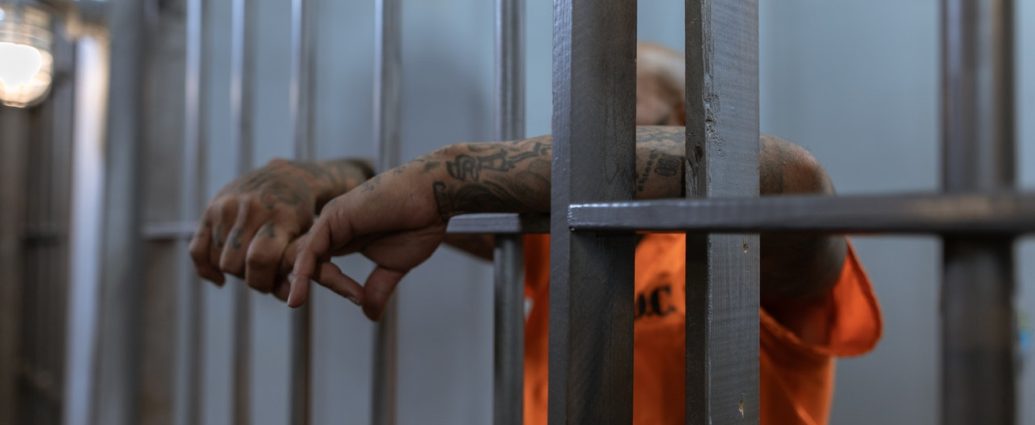Aleksei Navalny, the Russian opposition leader and activist, is seriously ill inside a Russian prison. Following suspected Novichok poisoning, the Kremlin critic is in need of medical attention, which he says is being refused by prison officials.
Forces imprisoned Aleksei Navalny, 44, earlier this year, on his return to Moscow, Russia. A suspected ‘Novichok’ agent poisoning saw Navalny rushed into intensive care in Germany. His nervous system shut down, putting him in a serious condition. However, after recovering to a stable state, he returned to his home country.
On his return, Russian Courts sentenced Navalny to two years and eight months in a penal colony prison. According to the courts, he broke the terms of his parole whilst under life-saving German care. The Federal State refuses to accept status as a ‘prisoner of conscience’. A recent Press Release from Amnesty International UK wrote:
“Aleksei Navalny, his associates, and all peaceful protesters arrested ahead, during and following the rallies on 23rd and 31st January, as well as today, are prisoners of conscience and should be immediately and unconditionally released.”
Angry supporters of the Kremlin Critic, some of whom are also detained, have been protesting for his release. According to NPR, a doctor who supports Navalny is also under detention, after attempting to enter K-12 Prison to speak to the prison doctors.
Navalny’s Symptoms
“new health worries are raising additional concerns.”
Navalny’s suspected Novichok poisoning is believed to have been an assassination attempt by associates of the Russian President, Vladimir Putin. Novichok causes the nerve system to shut down and paralyses vital muscles.
For Navalny, trapped nerves in his spine are causing pain, but new health worries are raising additional concerns. Under detention, his back and leg pain has worsened. His request to see a medic has been refused and consequently, he is now on hunger strike.
Olga Mikhaylova, Navalny’s lawyer, told sources, “He has lost a lot of weight, plus he has a strong cough and a temperature of 38.1C,” with a Facebook spokesperson sharing information of the rapid weight loss.‘
“He arrived in the colony 93 kg, now 85. An 8kg loss even before the hunger strike.”
Hunger, lack of sleep, and abuse of care could further affect already deteriorating health. However, prison officials deny any allegations of medical neglect, saying they have specialised medical teams. A spokesperson has said Navalny cannot expect special treatment.
Speculation suggests Navalny is now in a medical unit within the colonial prison. The persistent cough and temperature are both signs of Covid-19, but for this prison Tuberculosis (TB) is also at high risk; Aleksei recently tested negative for COVID-19.
Navalny himself shared an Instagram post in Russian saying, “a severe cough and temperature of 38.1 degree celsius, but there is a bright side… If I have tuberculosis, maybe it will drive away back pain and numbness of the legs.”
International Response
The plight of this Russian opposition leader is quickly spreading across the globe, as authorities step up to urge for the release of Aleksei Navalny. Amnesty, a non-Governmental organisation, has been rapid in its efforts to use its human rights campaign in favour of the individual’s situation. They say: “Even after years of documenting human rights violations and abuses by the Russian authorities, this latest crackdown stands out for its viciousness and sheer scale.”
“the controversy of politics and human rights will continue”
Moreover, Canadian President and Minister of Foreign Affairs, Marc Garneau, shared the need for change. A press release from the Government of Canada quotes:
‘The Russian government has repeatedly shown its unwillingness to respect the basic rights of its own people and address concerns raised on multiple occasions by the international community. Alongside our partners, Canada will continue to increase pressure on the Russian government to unconditionally release Mr Navalny and his supporters who have been unlawfully detained. Russia’s gross human rights violations will not go unanswered.’
In Russia, the detention or sentence of political opponents is against International Commitments. Consequently, the controversy of politics and human rights will continue, with the case of Aleksei Navalny currently at the forefront.
Heather Davey
Featured image courtesy of RODNAE Productions from Pexels. Image license found here. No changes were made to this image.

